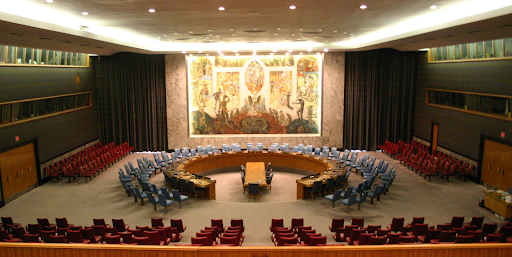The UN Security Council has authorized a new and highly structured framework for the future of Gaza, endorsing a US-drafted resolution built around President Donald Trump’s 20-point plan. Adopted on Monday, the resolution’s text outlines two central mechanisms: a “Board of Peace” to govern and a new international force to provide security. This move is designed to build on last month’s initial ceasefire and hostage-release agreement between Israel and Hamas, providing the international legitimacy needed to move to the next phase of ending the two-year war.
The first key component is the “Board of Peace,” a transitional authority that the resolution states will be chaired by President Trump. This body is given a sweeping mandate to oversee the entire reconstruction and economic recovery of the war-ravaged Palestinian enclave. Member states are explicitly authorized by the resolution to participate in this board, which is envisioned as the primary governance structure for Gaza during this transitional period. President Trump has already celebrated the vote, posting on social media that the board’s members and “many more exciting announcements” would be forthcoming.
The second component is the authorization of an “international stabilization force” (ISF). This force has a clear and challenging mandate: to ensure the complete demilitarization of Gaza. The resolution’s text empowers the ISF to actively decommission weapons held by militant groups and to find and destroy all military infrastructure. This security provision is what US Ambassador Mike Waltz referred to when he told the council the plan “dismantles Hamas’ grip” and ensures Gaza can rise “free from terror’s shadow.”
This demilitarization mandate is also the plan’s most immediate flashpoint. Hamas, in a statement released after the vote, unequivocally rejected the entire resolution. The group, which controls Gaza, labeled the plan an “international guardianship mechanism” that its people would not accept and specifically stated it “will not disarm,” arguing its fight is “legitimate resistance.” This directly challenges the ISF’s core mission before it has even been assembled, threatening a new phase of conflict.
The plan also faces diplomatic hurdles. Russia and China, both holding veto power, abstained from the vote, complaining that the resolution gives the UN no clear role in Gaza’s future. Russian Ambassador Vasily Nebenzya warned that the council was giving “complete control” to this new US-led initiative without knowing its “modalities.” Meanwhile, the plan’s reference to a “pathway to Palestinian… statehood” has drawn public opposition from Israeli Prime Minister Benjamin Netanyahu, even as the Palestinian Authority welcomed the resolution, highlighting the complex and fragile web of interests the Trump plan must navigate.

